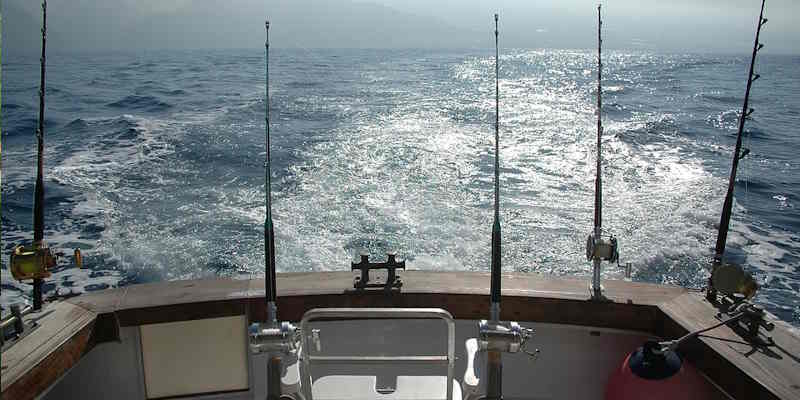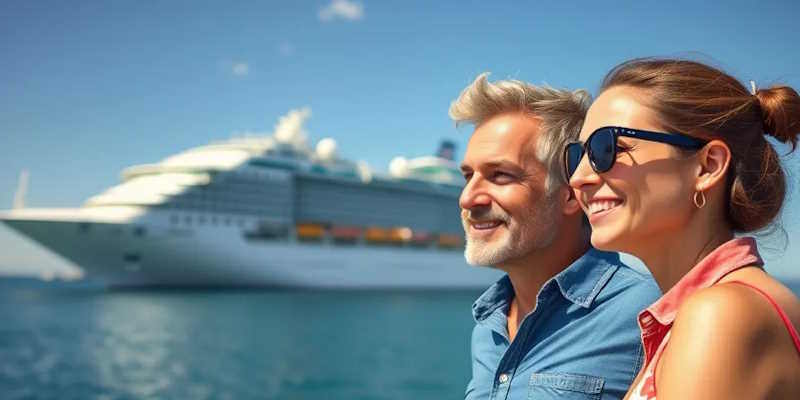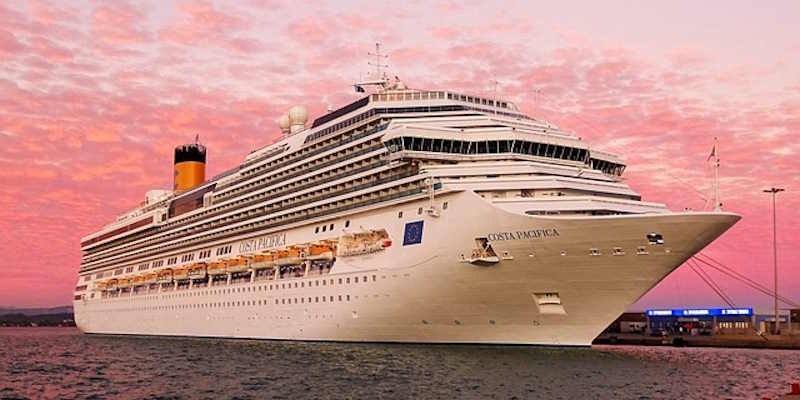Cruising in international waters offers exciting freedoms but comes with unique risks. Think sipping cocktails at 18, gambling 12 miles offshore, and enjoying superb tax breaks. However, it’s not all smooth sailing—you may have to deal with pirates, and there is no way you can legally light up a joint. The thing is that sailing in international waters is a dive into hidden rules, surprising possibilities, and the fascinating freedom of lawlessness that makes the high seas so unique.
So, what really happens when you leave home shores? Are you bound by the laws of your home country? Or do you get to enjoy freedoms and risks you could never imagine at home while gambling, stocking up on duty-free, and dodging pirates? Let’s uncover the surprising realities of cruising in international waters.
What Are International Waters?

International waters—called the high seas—start 12 nautical miles (22.2 km) beyond a nation’s coastline. Here, territorial boundaries end, and international maritime law begins. These laws affect travel, fishing, natural resources, economic restrictions, and activities aboard cruise ships. However, the legal complexities of international waters create surprising freedoms and challenges, making them a unique part of any ocean journey.
Things You Can and Can’t Do in International Waters
Ever wondered why you can gamble freely 12 nautical miles offshore but cannot smoke weed, even if it’s legal in your home state? The high seas are a confusing mix of strict boundaries and surprising liberties. Adding to the intrigue, some cruise lines muddy the water even more by enforcing their own rules.
Drink at 18 (But Not Always)

For some cruisers between ages 18 and 21, a cruise ship is sometimes the first time they can legally buy alcohol. In international waters, the drinking age drops to 18, thanks to the ship’s flag or company policy. It’s a surprising perk for younger travelers, but don’t assume it’s universal.
Typically, U.S.-based cruise lines stick to 21, even in international waters. So before raising your glass to toast your newfound freedom on the high seas, check the cruise line rules. Otherwise, you’ll have an awkward run-in with the bartender.
Gamble Freely Once You’re 12 Miles Out

Noticed how onboard casinos spring into life 12 nautical miles from shore? That’s because most gambling restrictions vanish in international waters, making cruises a haven for roulette, blackjack, and slot enthusiasts. You may even score free drinks and stateroom treats.
However, onboard casinos are not subject to federal laws, meaning they can offer worse odds and lower payouts than land-based gambling establishments. Also, some cruise lines have stricter rules than others. So, check with your cruise line or read reviews before hitting the tables.
Remember, cruise ship casinos are for fun, not profit. So, set a budget before rolling the dice or getting dealt a hand and enjoy the thrill responsibly.
Get Married at Sea (If the Flag Allows It)

Ever dreamed of saying “I do” on the open ocean? Many cruise lines offer at-sea weddings, but the ship’s flag determines whether it’s legally binding. Vessels registered in countries like Bermuda or Malta often allow captains to officiate ceremonies.
However, not all flags permit marriages at sea, so double-check the rules before booking. If it’s allowed, you’ll get a unique, romantic backdrop for your vows—and an unforgettable start to your marriage.
No Smoking Weed (Even Medical Marijuana is a No-Go)

Think you can legally bring or smoke marijuana on a cruise? Even in states where weed is legal, cruise ships follow federal and international laws, which strictly prohibit it—even medical marijuana with a doctor’s note.
One woman was banned for life from Carnival cruises because she had CBD gummies in her carry-on.
Maritime law treats weed as an illegal substance, and getting caught could mean fines or being kicked off the ship. To avoid trouble, leave it behind and focus on enjoying your cruise in other ways. It’s not worth the risk.
Defend Yourself Against Pirates (Yes, Pirates Still Exist)

“Pirates of the Caribbean” might be a swashbuckling blockbuster fantasy, but piracy is alive and well in some parts of the world. Cruise ships steer clear of high-risk zones—usually off the east coast of Africa. Also pirate attacks in the Caribbean are rare today.
Did you know that cruise ships have anti-pirate measures like water cannons and long-range acoustic devices (LRADs)? The captain is also trained in using evasive tactics or other covert measures to outsmart pirates. Thankfully, pirate attacks on cruise ships are about as rare as finding buried treasure.
Shop Till You Drop—But Know the Rules

Duty-free shopping at sea can feel like a dream—luxury goods, alcohol, and souvenirs without the hefty taxes. But don’t let the excitement fool you because those savings might not last when you get back to shore; there is the possibility that you could still be required to pay customs duties or taxes on the items you purchased when you return to your home country or disembark at a port.
When you bring those items back to shore, you may need to declare them to customs at your destination. Depending on your country’s rules, if your purchases exceed a certain limit, you could be charged customs duties, taxes, or fees upon arrival. Also, it’s typically cheaper to shop onshore rather than pay hiked-up cruise ship prices.
Customs laws vary, and exceeding duty-free limits could lead to unexpected fees or confiscations. Check your allowances before splurging, and remember—the real treasure is avoiding surprises at customs. Shop smart, not just freely.
Fish Freely (But Watch for Licenses)

Fishing in international waters offers a unique sense of freedom, with no single nation governing the high seas. However, that doesn’t mean it’s a free-for-all. Some fish species are protected by international agreements, and specific licenses may still be required depending on your location or the ship’s flag.
If you’re planning a fishing trip, choose reputable tour operators to ensure you don’t break local fishing laws. Being informed helps you avoid fines or losing your catch.
Don’t even think about fishing from the side of a cruise ship. Most cruise lines prohibit this for safety and environmental reasons. One couple posted a TikTok video of themselves reeling in fish during a cruise. They were banned for life.
Save your fishing adventures for a designated trip, where you can enjoy the sport responsibly.
Get Tax Breaks If You Live at Sea

Living at sea as a cruise ship employee or full-time cruiser can come with serious tax perks. If you spend most of the year outside your home country, you might qualify for reduced tax liabilities under specific residency rules. For some, a cruise ship becomes both a home and a financial advantage.
However, tax laws vary widely by country, and eligibility depends on factors like time spent ashore and income sources. For example, all U.S. citizens are liable for federal income tax regardless of the ship’s flag. However, cruise ship employees may qualify for Seafarer’s Earning Deduction.
Consult a tax professional to navigate IRS rules and maximize your benefits.
Bury at Sea (But Not Viking Style)

A burial at sea might sound romantic, but it’s nothing like the fiery Viking send-offs you’ve seen in movies. And don’t think you can shake grandma’s urn overboard from your balcony like a salt shaker. You must follow strict cruise line regulations. Offshore burials typically involve scattering ashes by releasing the urn overboard.
Most cruise lines have legal guidelines about disposing of ashes at sea. These usually include providing a death certificate and a cremation certificate. You must also inform Guest Services about the time and place for the “burial.”
Carry Firearms (But Not on Cruises)

Carrying firearms on the open ocean isn’t as simple as it sounds. Maritime law, the ship’s flag, and the port countries’ regulations all dictate what’s allowed—and most of the time, firearms are heavily restricted. Basically, a ship with a U.S. flag can carry firearms, as permitted by federal law.
Of course, you cannot take any firearms or weapons on a cruise ship. For safety reasons, they are strictly prohibited, even if you have a permit. But don’t worry about personal security onboard. There are cameras everywhere with 24/7 CCTV surveillance, and the ship’s security handles protection.
Commit a Crime (You’ll Still Be Caught)

Think international waters are a lawless free-for-all? Think again. Commit a crime in the Caribbean Sea, the Mediterranean, or the middle of the ocean, and you face serious consequences. You can be arrested and tried under the laws of the ship’s flag.
There’s another thing to consider. You could also be tried under the law of the country where the victim is from.
From theft to assault, offenses don’t go unnoticed. Cruise ships have strict protocols, and the captain will contact local law enforcement at the next port of call. Serious cases can even result in arrests upon docking, or the perpetrator could end up in the ship jail—yes, there is one.
So, while the high seas may feel like an escape, the rules are always watching.
What You Agree to in the Cruise Contract Without Knowing

When you book a cruise, you’re agreeing to a lengthy contract—one most passengers never read. Hidden in the fine print are clauses covering everything from dispute resolution to limited liability, refunds, and getting kicked off the ship. In reality, signing a cruise contract makes you waive certain rights.
Here are a few surprising facts I discovered while researching this article:
- The cruise line has the right to search your cabin, bags, and personal effects without notice.
- You give the cruise line rights to use pictures and videos of you as they see fit.
- Receive compensation if jewelry gets stolen from your stateroom—but only up to a value of $50 per guest and $100 per stateroom.
- The cruise line isn’t responsible for mistakes caused by their medical staff.
- Any claims against cruise ships generally must be filed in Miami.
What Happens During Emergencies or Medical Crises?

Emergencies at sea might sound terrifying, but cruise lines have it down to a science. From medical mishaps to full-scale evacuations, they’re prepared for almost anything. Knowing how it works isn’t just smart—it can be a game-changer for your peace of mind onboard.
Cruise ships have limited medical facilities onboard, usually consisting of a doctor and two nurses. In some larger vessels, you might find x-ray machines, ICU units, and isolation rooms. Medical staff can also give antibiotics and certain prescription medicines.
It’s vital to note that cruise ship doctors are independent contractors charging a basic hourly fee. You must also pay for tests and medications on top of that, with all charges conveniently added to your shipboard spending account.
This is why I always book travel insurance for my cruises to protect myself financially from any unforeseen events.
Your Rights in a Medical Emergency
Cruise ships have medical facilities, but care is often limited to basic treatments. If you need serious attention, you may be evacuated to the nearest hospital. Always check your travel insurance policy—it’s your safety net for unexpected medical expenses at sea. Ensure it covers sailing in international waters.
When Accidents Happen

Slips and falls, food-related illnesses, and other accidents onboard are governed by maritime law. While cruise lines have safety protocols, liability often depends on your actions and the circumstances. Document incidents immediately to support any claims you might need to make later.
Regulations under the Athens Convention cover incidents that occur in international waters. These ensure that cruise lines provide a “duty of care” to passengers and staff. Therefore, incidents like slipping, tripping, chemical injuries, trauma, or food poisoning may be the cruise line’s responsibility.
What should you do if you have an accident at sea? Here are a few crucial steps:
- Report the incident: Contact the ship’s staff immediately to make an official report. This step creates an official record and documentation for potential claims.
- Medical treatment: Get medical treatment to assess the injury and provide a medical record of the incident.
- Document everything: Take photographs of where it happened, get the names and addresses of witnesses, and keep medical and expense records safe.
- Legal action: Don’t sign anything without legal advice. Consult with an attorney who specializes in cruise ship accident claims.
Remember that comprehensive cruise travel insurance covers unexpected medical expenses in international waters.
How Cruise Lines Handle Emergencies at Sea
Ever wonder what happens when things go wrong at sea? Don’t worry—the crew has got you covered. Crew members get regular training to deal with fires, first-aid, evacuations, and even how to abandon the ship in a severe emergency.
Cruise ships also have advanced safety systems to keep you safe and reduce incidents of foodborne illnesses. All so you can have a worry-free cruise vacation onboard or during shore excursions.
What if a serious incident takes place? The ship’s crew has procedures to arrange for helicopter evacuations to the nearest medical facilities onshore.
Yet another reason to ensure you have excellent travel insurance.
The Hidden Side of International Waters
Sailing the high seas isn’t always about fun and freedom. Unfortunately, international waters have a less glamorous side. From environmental concerns to controversial labor practices, maritime laws can seem as murky as the ocean is a storm.
Flags of Convenience

Wonder why U.S.-based cruise lines have ships flying flags like Panama, the Bahamas, Bermuda, and Malta? Typically, they can save money by bypassing stricter labor and safety regulations in their home countries. This means no minimum wages, long working hours, excessive overtime, and zero paid vacation leave. So, remember that excellent cruise deal you snagged? It probably came at the cost of underpaid foreign workers.
Low labor costs

To stay competitive, cruise lines often hire crew from countries where wages are lower. While this provides jobs and opportunities for workers worldwide, critics argue that some crew members endure long hours for minimal pay.
Cruise companies claim these arrangements benefit workers, but labor rights advocates push for greater transparency and protections. Unfortunately, behind cruise line luxury is an underpaid and overworked workforce making sailing in luxury at sea possible.
Impact on the environment

Cruise ship luxury comes at a high environmental price. Ships release emissions, discharge wastewater, and contribute to ocean pollution.
While many cruise lines are adopting greener technologies, like LNG-powered engines and waste treatment systems, enforcement of these standards varies by region. Choosing eco-friendly cruise lines is one-way travelers can help protect the seas they sail.
Real Stories of Maritime Drama
The high seas hold secrets you won’t believe—some daring, some shocking. From breathtaking rescues to pirate stand-offs and jaw-dropping scandals, these real-life maritime dramas prove anything can happen once you’re at sea.
Medical emergency: In September 2024, an 8-year-old boy was airlifted from the cruise ship “Royal Princess” by the U.S. Coast Guard after experiencing appendicitis. Despite foggy conditions, the rescue was successful, and the boy recovered after surgery.
Piracy encounter: In 2012, pirate boats tried to attack the cruise ship “Azamara Journey” off Oman’s coast. The crew’s evasive maneuvers and warning flares deterred the pirates, ensuring passenger safety.
Hidden cameras scandal: A former Royal Caribbean employee got 30 years in prison in 2024 for secretly filming passengers onboard the Symphony of the Seas. The man had set up cameras in bathrooms, and it’s estimated he filmed hundreds of passengers.
After the conviction, passengers began suing Royal Caribbean for damages, holding the cruise line responsible for the person’s actions.
Sailing in International Waters: My Final Thoughts
Cruising offers one of the most unique vacation experiences. From port hopping in the Caribbean or Mediterranean to sipping cocktails at 18, getting married, and gambling freely, knowing the facts makes every voyage smoother.
Here’s to safe travels, unforgettable memories, and the magic of the high sea.
Related articles:

